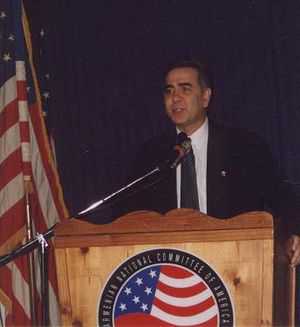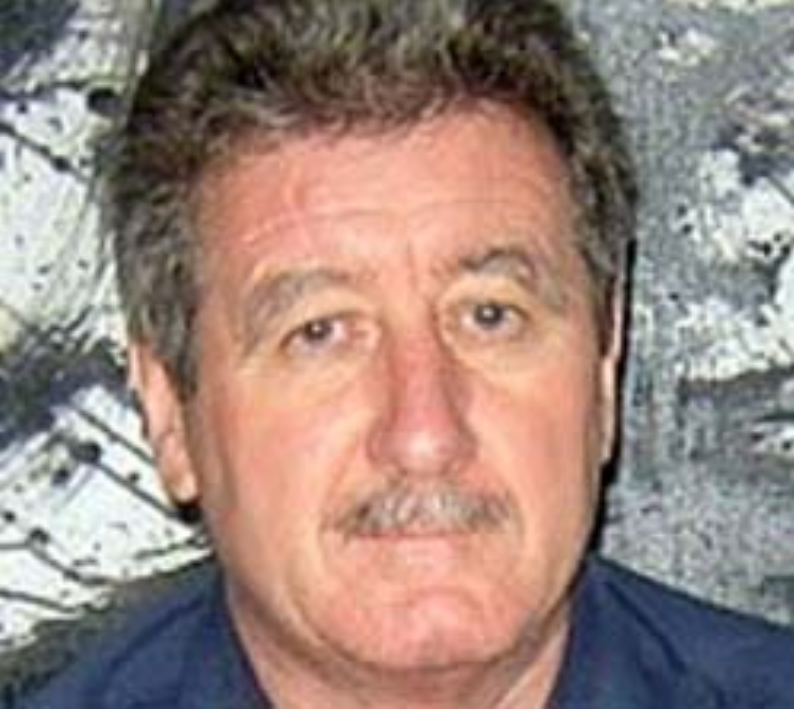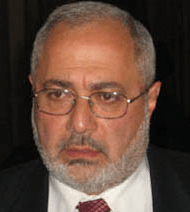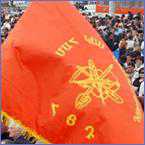CAUCASUS UPDATE
In this new section, we publish the weekly analysis of the major events taking place in the Caucasus. The Caucasus Update is written by our Editorial Assistant Alexander Jackson.
On April 20 the US State Department announced that Richard J. Morningstar had been appointed special envoy on Eurasian energy issues to Secretary Clinton (State Department, April 20). Morningstar will “provide the Secretary with strategic advice on policy issues relating to development, transit, and distribution of energy resources in Eurasia”. He is certainly well qualified for the job – he served as special advisor on Caspian basin energy diplomacy in 1998-1999, prior to which he served as a special advisor on assistance to the former Soviet Union.
The appointment of the special envoy suggests that the Obama Administration’s policy on the Caspian region is finally beginning to take shape. This should come as no surprise – the area does, after all, lie between two of President Obama’s biggest foreign-policy challenges, Russia and Iran, as well as Turkey, which has been highlighted as a key US ally in the drive to rebuild America’s image in the Muslim world.
But even in these critical areas the delay in appointing officials – which is so clear elsewhere in the US government, particularly the Treasury – is also visible. As of April 23, the position of Deputy Assistant Secretary of State for Russia, Belarus, Moldova and Ukraine was still vacant. Although most of the headline-grabbing policies towards Moscow so far have been initiated by President Obama or Secretary Clinton, the lack of a dedicated high-level official for Russia is alarming.
The profile of the Administration’s other Eurasia specialists suggests that the Obama Administration does not intend to make a radical break with the Bush era. Heading the Bureau of European and Eurasian Affairs as a replacement to Daniel Fried will be Philip H. Gordon, a Europe and Turkey specialist (Joshua Kucera over at Eurasianet wrote an excellent profile of Gordon on March 18). However, Gordon’s confirmation has been held up in the Senate by John Ensign, a Republican with links to the Armenian lobby. Ensign has allegedly blocked the confirmation in response to Gordon’s refusal, in a hearing before the Senate Foreign Relations Committee, to classify the tragic events of 1915 in the Ottoman Empire as ‘genocide’. This is not something new. Similar “refusals” prevented several other key appointments in the past including the appointment of an ambassador to Armenia for a couple of years up until 2008.
Gordon’s argument, which appears to be echoed by President Obama, is that use of the term would inflame Turkish public opinion and embolden hardliners, ruining the new Administration’s attempts to rebuild ties with Ankara. This suggests a new emphasis on pragmatism, a trend also clearly visible in efforts to rebuild relations with Russia even if this means toning down support for Georgia.
However, a change in tone does not reflect a wholesale change in policy. This is to be expected. The parameters of US involvement in the Caspian region – energy, counter-terrorism, peaceful conflict resolution, containing Iran and providing a bridgehead for operational support in Central Asia, are not likely to change. It was therefore logical that Matthew Bryza, the State Department’s top official for the South Caucasus and co-chair from the US in the OSCE Minsk Group, remained at his post. He has built up a solid reputation in the region and possesses extensive experience of its problems.
As noted above, any shifts in the new Administration’s policy towards the Caspian and the South Caucasus are likely to come through changing policies towards Russia, Iran, or Turkey. President Obama’s desire to reset relations with Russia has had mixed results so far, with agreements, for instance on strategic arms reductions, alternating with aggressive rhetoric against continued cooperation between NATO and Georgia (BBC News, April 16). The US so far has shown rhetorical restraint, and has made little fuss about the retrial of the ex-Yukos boss Mikhail Khodorkovsky.
This pragmatism is also visible in the Caucasus: the Obama Administration has held back from the unequivocal declarations of support for Georgia’s President Saakashvili that he received during the Bush Administration. Seeing him replaced with someone less bombastic towards Russia would probably be a quiet relief for Washington. As for Georgia’s NATO aspirations, the Obama administration will probably stick to the line agreed at the December 2008 summit – Georgia will be a member of NATO, but not yet.
There are three big questions with regard to Georgia. Firstly, how much military assistance is the US willing to offer to rebuild the country’s shattered armed forces? The cost of irritating Russia is likely to outweigh the benefits of re-equipping the Georgian military with American kit. Secondly, how would the US treat a revolution in Georgia? Its reaction to 2003’s Rose Revolution was generally supportive: it strongly criticised the falsified election which triggered the protests and was quick to congratulate President Saakashvili. His replacement by a Russia hawk would provoke grave concern in Washington. Thirdly, what would the new Administration do in a new Russia-Georgia war? Speculating on such a chaotic event is of course fanciful, but the US would certainly not go any further than the Bush Administration did in last August’s war. If John McCain – a noted Russia hawk and supporter of President Saakashvili – had won the election, things might be different.
The second big issue is Nagorno-Karabakh. Matters are largely out of Washington’s hands here. Although it co-chairs the OSCE Minsk Group tasked with resolving the conflict, Russia is far more dominant in this framework and the US has been increasingly hedged out of the peace process by Moscow and, to an extent, Ankara. Turkey’s Caucasus Stability and Cooperation Platform, which is apparently already operating despite a lack of fanfare (RFE/RL, April 20), was specifically designed to minimise the impact of outside powers on the Karabakh process.
Nonetheless, Ankara remains Washington’s main way of leveraging the conflict, partly through its rapprochement with Armenia. President Obama’s high-profile visit to Turkey in March was an explicit attempt to enlist the assistance of Washington’s main Muslim partner in Eurasia and a key NATO member to improve the US’s standing in the Islamic world. The appointment of Gordon indicates the new importance of Turkey, as well as a clear-headed desire to solve the Armenian issue.
Finally, Caspian energy, Morningstar’s new portfolio. His appointment suggests that the Obama Administration is hoping for the Nabucco project to be a repeat of the successful BTC pipeline, whose inception was overseen by Morningstar in 1999. This is optimistic, but there are few people with a better chance. His European expertise (he was ambassador to the EU 1999-2001) may help to nudge Europe into more active support of Nabucco, but once again there is only so much that Washington can do here. At an energy conference in Bulgaria on April 25, Morningstar bluntly stated that Nabucco is not a panacea for Europe’s energy problems.
Although it is still early days, the outlines of Obama’s Caucasus policy are becoming clear. A renewed partnership with Turkey and a willingness to work with Russia are the core elements. The Armenian diaspora in the US will be a clear loser from this, but Washington’s support of the Turkish-Armenian thaw will certainly benefit Armenia itself. Georgia, or more specifically President Saakashvili, may also lose out. Azerbaijan may gain if the Administration invests more energy in the Karabakh conflict, notwithstanding its limited influence there. In any case, the big question mark remains the new period of détente with Russia: if ‘pressing the reset button’ fails, the Bush-era cycle of confrontation in the Caucasus could easily resume.





 That was the retort from a leader of one of Armenia’s coalition parties, when in 2004 he was asked whether Armenia should resolve its differences with its western neighbor; the person who promised to release details of his 2004 Parliamentary Commission studies of grants, credits and humanitarian assistance, former Deputy Speaker of the Armenian National Assembly, Vahan Hovhanissian.
That was the retort from a leader of one of Armenia’s coalition parties, when in 2004 he was asked whether Armenia should resolve its differences with its western neighbor; the person who promised to release details of his 2004 Parliamentary Commission studies of grants, credits and humanitarian assistance, former Deputy Speaker of the Armenian National Assembly, Vahan Hovhanissian.
